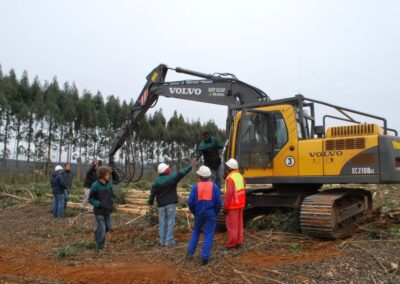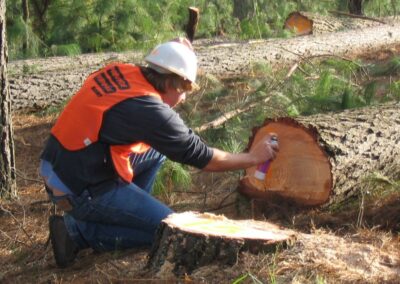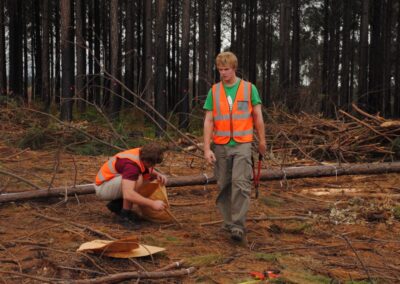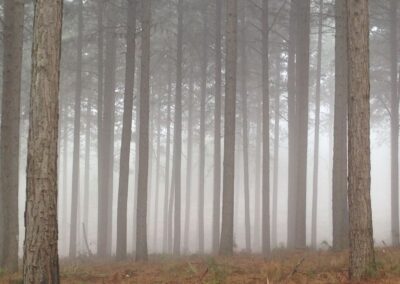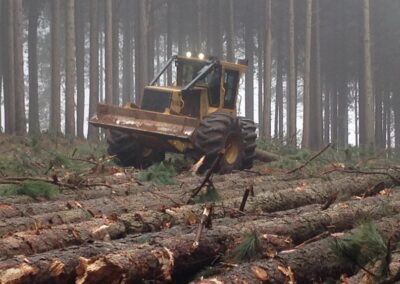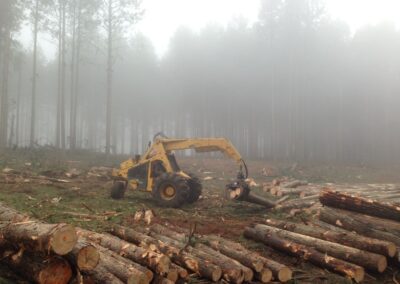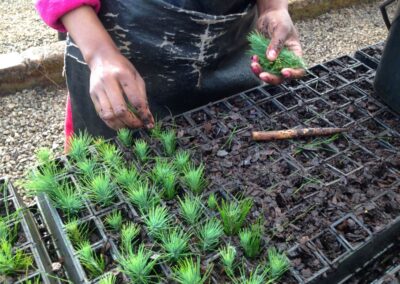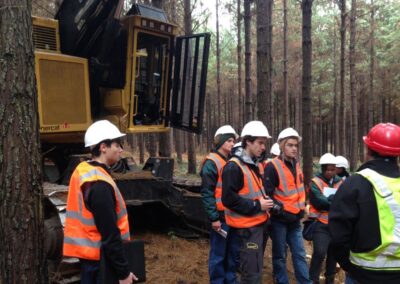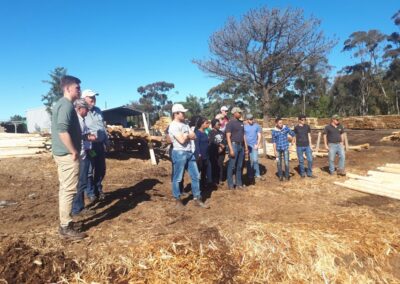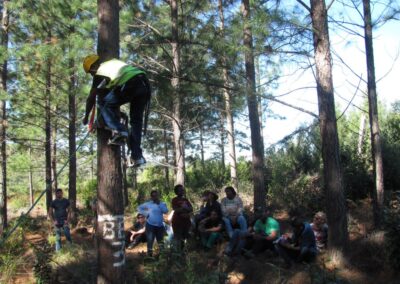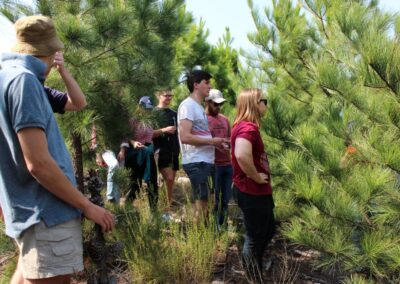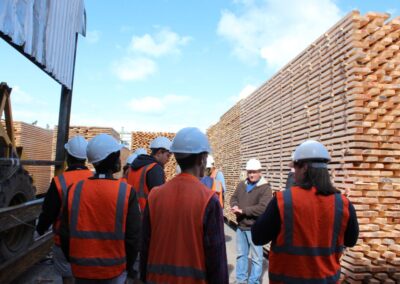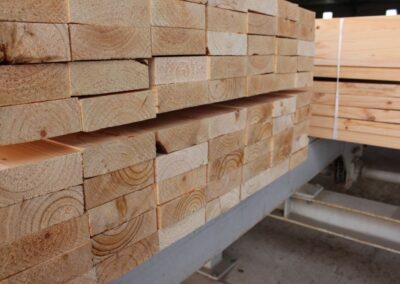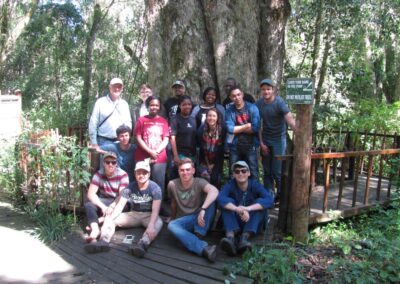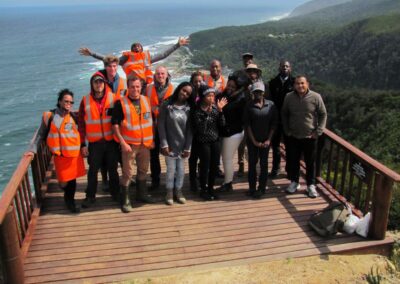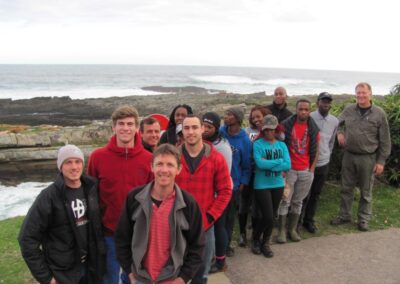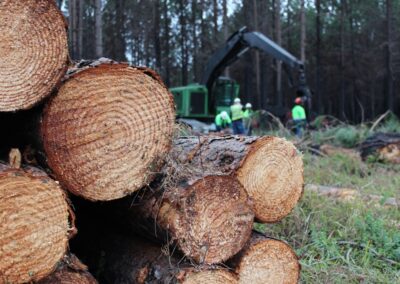AgriSciences

Forest and Wood Science plays a major role in forest sustainability. The demand for wood is showing a steady increase and to ensure sufficient wood resources for the future is of vital importance. Viewed against this background, it is obvious that special knowledge, skills and management expertise are required for sustainable agricultural and forestry production.
The Department is a specialised training facility for the rapidly growing and important fields of sustainable wood and biomass production, processing, and the green economy. It offers a considerable body of teaching and research expertise along the entire Forest and Wood Products value chain. We train and equip the future leaders in the broad fields of Silviculture, Forest Management, Forest Operations, Wood Processing and “Green Building.” Our graduates are highly regarded, both locally and in the international labour market.
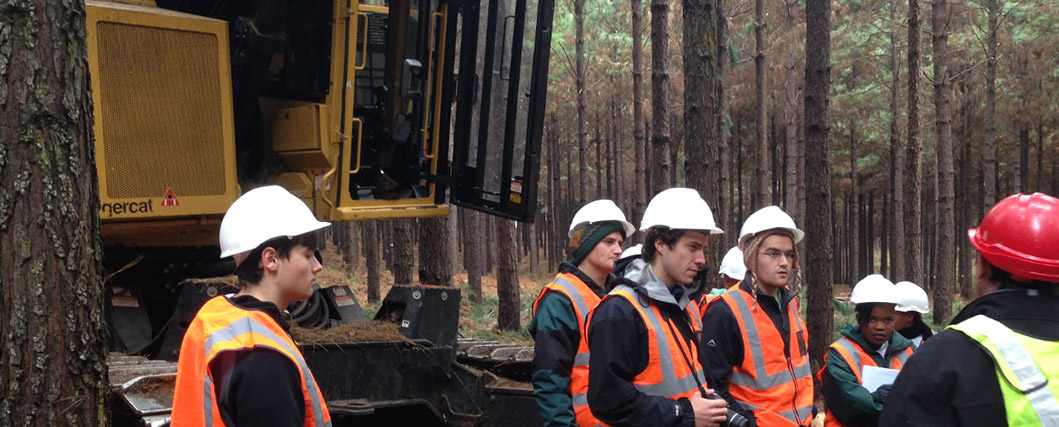
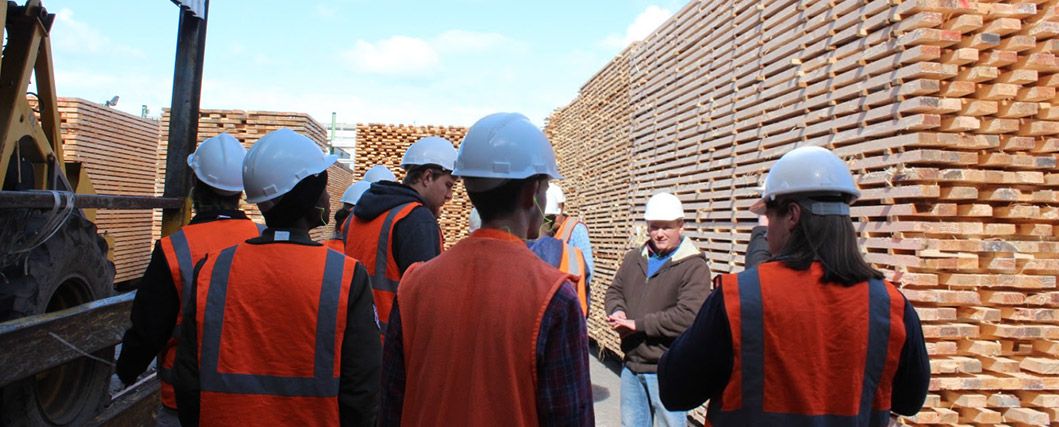
empty
empty tag
Does the Department of Forest and Wood Science (DFWS) offer only one degree programme?
No. The DFWS offers ONE degree (abbreviated BScFor), but it is split into TWO specialisations of which the formal names are (a) Forestry and Natural Resource Sciences, and (b) Wood and Wood Product Sciences. In the questions that follow, we will call them Forestry and Wood Science for short.
What are my employment options with a BScFor degree?
They are very good. Over the last decade, more than 85% of BScFor students were rapidly absorbed by the sector (i.e. they found employment immediately, or in the worst case within one year following graduation). Employment options are quite diverse: Students in the Forestry specialisation find employment with either multinational or South African forestry/timber companies, timber co-operatives, research institutions, science councils, forest conservation bodies/national parks, as private entrepreneurs or contactors, through placement in the government sector (e.g. DEFF), or as independent scientists/consultants. Students specialising in Wood Science often work for (or start-up) small-scale wood processing businesses, or find employment with sawmills, pulp mills, furniture manufacturers, window and door manufacturers, particle/plywood/composites or laminated products manufacturers, research institutions, science councils, or as private consultants. Please look at the Forest and Wood Science brochures, the programme presentation, as well as the Alumni Profile pages for some examples.
Is it readily possible to obtain bursary support for my studies?
Yes, but you must apply widely. More than 80% of our undergraduate students currently have bursary support. The forestry and wood products sector are currently investing heavily in student bursaries.
Must I have Physical Science in grade 12 to study Forestry or Wood Science?
Yes, you need both Mathematics and Physical Science.
Can I study Forestry or Wood Science if I have Mathematical Literacy?
No, unfortunately, you need pure Mathematics.
What are the admission requirements (i.e. school subjects and relevant grades) for the Forestry and Wood Science programmes?
The admission requirements differ as follows:
(a) For the Forestry specialisation, you need 60% average for the NSC, 50% for English or Afrikaans, 60% for Mathematics and 50% for Physical Sciences.
(b) For the Wood Science specialisation, you need 60% average for the NSC, 50% for English or Afrikaans, 70% for Mathematics and 60% for Physical Sciences.
Please note that only a limited number of students can be accommodated and meeting the requirements, unfortunately, does not guarantee a place in the programme.
How many years is the BScFor degree?
Four years for both specialisations.
Once I have employment, what are the chances for career improvement?
The BScFor degree is one of the few with which you can be promoted to middle management in medium or large companies within two years of graduating. Many of our dedicated forestry graduates are often given large responsibilities in the forest industry soon after initial employment. If you wish to follow a career in Forestry research, a four-year BScFor is the ideal launching pad, but then you should consider doing an MScFor and a PhDFor as well.
Does the BScFor degree from Stellenbosch have a high academic standing and is it recognised beyond the borders of South Africa?
Quite so. The 4-year BScFor degree from Stellenbosch is extremely well known and recognised due to our active collaboration with forestry faculties at universities of many countries on all continents, and moreover due to the prominent research outputs emanating from our department.
Can I register directly for an MSc after completing a BScFor degree?
Yes, you can. Note that there is a minimum requirement: a mark of 65% in the field of specialisation.
Do the BSc Forest & Wood Science programmes include fieldwork?
Yes, from the 2nd year on you will spend substantial time in the field. Field excursions will mainly take place during the 3-hour practical sessions plus a few short training courses/study trips during vacation periods. In the 4th year, you will be expected to conduct a mini-research project that usually includes a fieldwork component (depending on the type of project you select).
If I do not get traction in the Forestry programme, can I switch to other programmes in the Faculty of AgriSciences?
A programme change is possible if there is space in the new programme. Moreover, it is best done early (within the first two weeks) or alternatively, after completing the 1st year, as many of the programmes in question then only differ by two or three modules.
If I do not wish to continue with Wood Product Science after year one, can I switch to other programmes in the Faculty of Engineering?
A programme change can be made if you have good marks and if there is space in the new programme. Moreover, it is best done after completing the 1st year, as the 1st year Wood Product Science programme is closely aligned to most Engineering 1st year programmes.
Is it easy for a student to switch from the Forestry specialization to the Wood Science specialization (or vice versa) within the degree BScFor?
Switching between these two programmes at the end of the first year is difficult, as these two specialisations have only one first-year module in common. A conversion of this nature (if there is space in the destination programme) will therefore mean an extra year to your studies.

